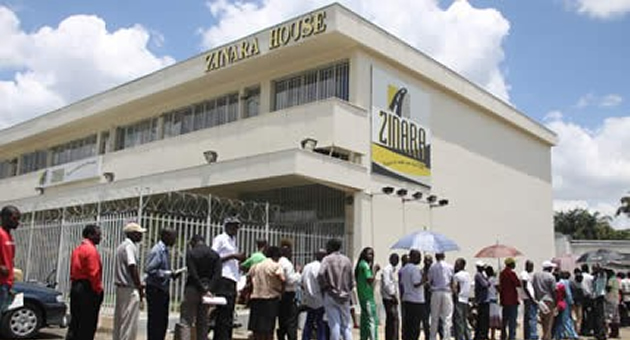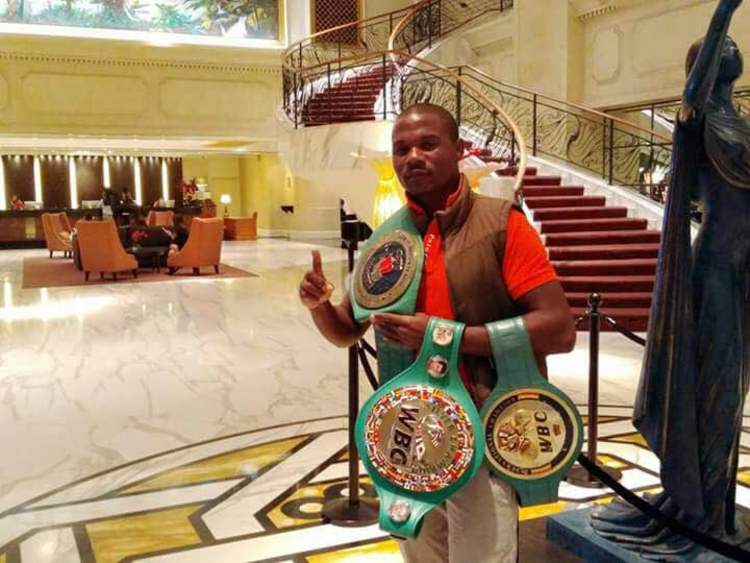Zanu-PF primaries, manifesto and ABBA

Tichaona Zindogai Political Editor
The peaceful transition ushered in by last November’s Operation Restore Legacy is a classic case of Zimbabwe being a peaceful and tranquil environment where capital will go undisturbed as hardworking Zimbabweans put shoulder to the wheel.
At the time of writing, results of primary elections in Zimbabwe’s ruling party, Zanu-PF, are trickling in and revealing a picture on a cast of talent that will do duty for the revolutionary party in elections that are effectively and constitutionally due in less than 90 days.
The results, and indeed an assessment of the candidates, will require an iteration of their own.
However, it is critical to pass a few key remarks on the process that has just taken place, as a barometer of the party’s organisational capacity and a glimpse into its emerging leadership as represented by the people who competed, won or lost.
Two main points can be made in this connection: a) Zanu-PF remains a mass party that appeals to a broad section of society, and; b) Zanu-PF has an organisational issue that requires urgent attention. These primary elections are the first to be held post-November 2017 when former leader and president, Robert Mugabe, was removed and replaced with Emmerson Mnangagwa. Indeed, the upcoming elections will be the first in which Mnangagwa does battle in a presidential poll. This, overall, means that the transitional and renewal process in the ruling party is ongoing and will be confirmed, crowned and concluded with the crucial elections in mid-year. The primary elections have thus afforded us a crucial glimpse into this process.
A wide array of candidates in this mock election, indexed on differential measures such as gender, race, age, faith, vocation, among others, has given the ruling party arguably its most diverse and competitive field in many years. Expectedly, some interesting news about how the candidates fared kept Zimbabweans enthralled. We await confirmation of these thrills and spills. That Zanu-PF has been able to attract new and diverse talent, among them former Diasporans, young businessmen and racial minorities, cements the notion that it is the country’s most important political institution, something that is also confirmed by the interest, sometimes obsession, that was witnessed in this process including from the opposition.
It is a weight that the revolutionary party should be feeling on its shoulders both as a function of its historical obligations and as a reasonable expectation for an old and respectable institution.
This brings us to the second point to be made regarding the primary elections – that of the party’s state of organisation. A glaring, if shocking, shortfall in organisation – that duty to mobilise structures, human and material resources which falls on the new political commissar, has been identified. To put it bluntly, the poor organisation of these elections has been the bigger story of the exercise and the organisation’s chief has been found wanting. President Mnangagwa, who is Zanu-PF’s First Secretary, has called the chaos, teething problems. Many would argue that is to put it mildly – and it’s true.
This level of disorganisation, on the eve of a crucial election should worry the Zanu-PF faithful and call for urgent redress by way of deploying talent and resources to ensure that Zanu-PF does not throw its apparent advantage going into election 2018. A multi-disciplinary and diverse team or taskforce needs to now be put in place to assist the party’s organising department otherwise known as the commissariat. Ideally, it should be a team that is modern (as in belonging to the 21st century), imaginative, energetic, responsive and given to scientific methods of doing things, all building on the institutional memory and culture of the organisation. That can still be achieved to avoid an unlikely upset for the ruling party.
No doubt, an introspection of this nature is taking place within the ruling party in the aftermath of the sometimes farcical and disastrous process. We call it a post-mortem.
The coming manifesto
Just as well, these primary elections are coming before the ruling party launches its campaign manifesto on Friday, marking the official beginning of the season of winning the hearts and minds of the electorate by Zanu-PF.
Our common understanding of a manifesto is that it is a set of promises politicians make to prospective voters, on the strength of which they will get and execute a mandate. At the time of writing, I have not yet laid hands on the document, for all modest efforts I have made to relevant people for it to be availed for academic purposes. Be that as it may, we will attempt to discuss the coming manifesto on the basis of the ruling party’s last manifesto, the nation’s broad expectations and suggest a simple and effective way to underpin the presentation of the next grand promises by Zanu-PF to Zimbabwe and beyond.
Ahead of general elections in 2013, Zanu-PF presented a manifesto that was anchored on the theme, “Indigenise, Empower, Develop and Create Employment”. The main message that issued from there, at least by popular interpretation and newspaper soundbite, was that the ruling party promised to create 2,2 million jobs after winning.
It was a promise that became so notorious and subject to much discussion. It offers, also, a key lesson which one would hope that the ruling party learnt. After Zanu-PF won against the main opposition MDC-T, then led by Morgan Tsvangirai, its election manifesto became the basis of a policy blueprint called Zimbabwe Agenda for Sustainable Socio-Economic Transformation (Zim-Asset).
A fair assesment will be that Zim-Asset was not able to completely measure up to the expectations of the people, in as lofty terms as the 2,2 million jobs promise.
Many a time, the policy was rudely waved in the face of the ruling party amid socio-economic problems that beset the country. Some, if not all, persist to this day and into the next election.
It is an uncomfortable reality that Zanu-PF, in its transition and promise of a “new dispensation”, must confront.
The parameters for this new set of promises will be discussed below.
Economy, economy, economy
But it is useful to outline some key expectations that the manifesto – and delivery on the same – must capture.
There is no doubt that the single most important issue for Zimbabweans at home and in the Diaspora are worried about is the economy.
Just that. Just so simple!
People reasonably expect the economy to recover following more than two decades of de-industrialisation, negative growth and decay.
It is a sorry story that is now well told, all with the shame to go with it. Many Zimbabweans have been reduced to a state of penury at home and refugee and destitute abroad. Zimbabweans would want restoration and addressing the economy will be key to that.
The main elements of the economy that will need urgent and practical redress include: availability of cash in the banks for the transacting public; jobs for millions of unemployed as well as skilled talent at home and abroad and availability of affordable basic goods and services.
A sound macroeconomic policy will provide for these elements and one has to assume that the ruling party has the answer which will be predicated on attracting, unlocking and generating money – and big money – from within and outside the country. It is not an easy task but Zanu-PF will need to convince people that it can do it.
Another layer tied to the economy – and macroeconomics – is the provision of social services such as health, education, housing, access to clean water, electricity and public amenities. A sound economy will make these flow. Infrastructure and systems for providing these has decayed over the years owing to lack of investment and upgrade to match growing populace. The State should also be able to take care of its pensioners and the vulnerable in society.
The biggest capital Zimbabwe has had – which should ultimately work in the country’s favour in providing for socio-economic turnaround – is the availability of peace and stability. The peaceful transition ushered in by last November’s Operation Restore Legacy is a classic case of Zimbabwe being a peaceful and tranquil environment where capital will go undisturbed as hardworking Zimbabweans put shoulder to the wheel. The opening up for more civil and political rights spaces will be more desirable to make Zimbabwe a democratic and open society, and help the governance and delivery and realisation of the above.
It is trite to mention that observance of human, civil, political and property rights has been identified as a condition for the revival and restoration of relations with countries in the West. But the bigger international diplomacy narrative will involve not only that re-engagement with the West but also pursuit of beneficial, economic-diplomatic relations. It is useful to note at this point that Zimbabwe has enjoyed renewed international goodwill, complete with its mega deals, which the ruling party will have to tell the nation how it is going to operationalise for the long-awaited benefit of the country.
Ambitious, Believable, Bankable, Achievable (ABBA)
I now propose that, placed in historical and present contexts, Zanu-PF, as it seeks a fresh mandate, should have promises that are ambitious, believable, bankable and achievable. That is the basis of this acronym, which otherwise would be associated with a Swedish pop band.
In simple terms, the party has to promise what it can achieve and avoid a crisis of expectation a la 2,2 million jobs. Not that it’s not achievable – or was not achieved, whatever measurement one could use. The sting is that people would like to see jobs tumbling out of factory turbines, which they can see and experience without having to be convinced by some sophistic explanations. In terms of the believable and achievable, there is a reason why people have laughed off some politician’s promise of bullet trains and village airports and spaghetti roads. That is neither believable nor achievable. On the last parameter, all promised projects and proposals will need to be bankable, that is not only ambitious, believable and achievable, but also bankable, which speaks not only to practicality but also sustainability, which is critical in the huge task that is reviving Zimbabwe.









Comments